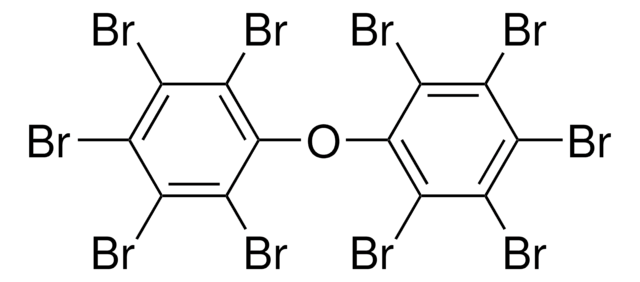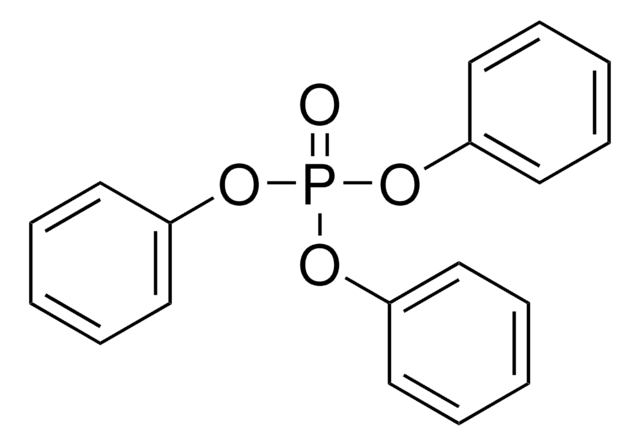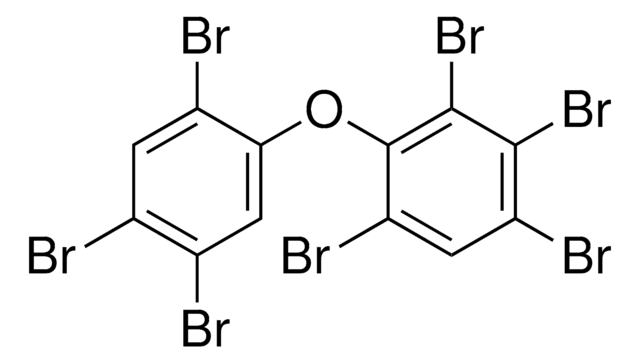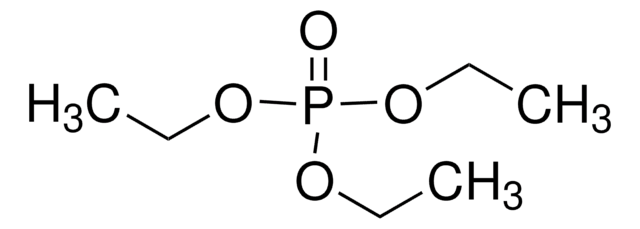33676
BDE No 99 solution
50 μg/mL in isooctane, analytical standard
동의어(들):
2,2′,4,4′,5-Pentabromodiphenyl ether solution, 2,2′,4,4′,5-PentaBDE, PBDE 99
로그인조직 및 계약 가격 보기
모든 사진(1)
About This Item
실험식(Hill 표기법):
C12H5Br5O
CAS Number:
Molecular Weight:
564.69
EC Number:
MDL number:
UNSPSC 코드:
41116107
PubChem Substance ID:
NACRES:
NA.24
추천 제품
Grade
analytical standard
Quality Level
유통기한
limited shelf life, expiry date on the label
농도
50 μg/mL in isooctane
기술
HPLC: suitable
gas chromatography (GC): suitable
응용 분야
environmental
형식
single component solution
저장 온도
2-8°C
SMILES string
BrC1=C(OC2=CC(Br)=C(Br)C=C2Br)C=CC(Br)=C1
InChI
1S/C12H5Br5O/c13-6-1-2-11(9(16)3-6)18-12-5-8(15)7(14)4-10(12)17/h1-5H
InChI key
WHPVYXDFIXRKLN-UHFFFAOYSA-N
일반 설명
BDE No 99 is a polybrominated diphenyl ether pollutant, having low acute toxicity. It can be commercially used as a flame retardant additive in building materials, textiles, plastics, and electronic equipments.
애플리케이션
BDE No 99 may be used as an analytical reference standard for the determination of the analyte in:
- House dust samples using isotope dilution method combined with liquid chromatography coupled to negative ionization atmospheric pressure photoionization tandem mass spectrometry (LC-NI-APPI-MS/MS).
- Adipose tissue samples using gas chromatography coupled to ion-trap mass spectrometry (GC-IT-MS/MS).
Refer to the product′s Certificate of Analysis for more information on a suitable instrument technique. Contact Technical Service for further support.
기타 정보
The customer needs to make sure that the standard is homogeneous, this can be achieved by shaking, vortexing , or sonicating the ampoule before opening the ampoule. Care should be taken when opening the ampoule to avoid any injuries from the broken glass.
The standard should be transferred to a clean and appropriate vial or flask using clean pipettes or micro pipettes. The vial should be immediately capped to avoid any loss or evaporation of the solvent.
After opening the ampoule, the standard should not be stored or kept in the ampoule. To preserve the integrity of the product, the standard should be transferred to an appropriate vial that must be capped and stored according to the recommendation on the Certificate of Analysis.
The standard should be transferred to a clean and appropriate vial or flask using clean pipettes or micro pipettes. The vial should be immediately capped to avoid any loss or evaporation of the solvent.
After opening the ampoule, the standard should not be stored or kept in the ampoule. To preserve the integrity of the product, the standard should be transferred to an appropriate vial that must be capped and stored according to the recommendation on the Certificate of Analysis.
신호어
Danger
유해 및 위험 성명서
Hazard Classifications
Aquatic Acute 1 - Aquatic Chronic 1 - Asp. Tox. 1 - Flam. Liq. 2 - Skin Irrit. 2 - STOT SE 3
표적 기관
Central nervous system
Storage Class Code
3 - Flammable liquids
WGK
WGK 2
Flash Point (°F)
10.4 °F
Flash Point (°C)
-12 °C
개인 보호 장비
Eyeshields, Faceshields, Gloves, type ABEK (EN14387) respirator filter
Development of a gas chromatography/ion trap mass spectrometry based method for the quantification of polybrominated diphenyl ethers and polychlorinated biphenyls in adipose tissue.
Naert C, et al.
Rapid Communications in Mass Spectrometry, 18(19), 2317-2332 (2004)
Youssef Oulhote et al.
Environment international, 119, 79-88 (2018-06-26)
Prenatal exposure to polybrominated diphenyl ethers (PBDEs) has been associated with cognitive deficits and behavioral problems in children. To date, no study has examined this exposure in association with neurobehavioral development in infants younger than 12 months assessed with observational tasks.
Isotope dilution method for determination of polybrominated diphenyl ethers using liquid chromatography coupled to negative ionization atmospheric pressure photoionization tandem mass spectrometry: validation and application to house dust.
Abdallah E-A M, et al.
Analytical Chemistry, 81(17), 7460-7469 (2009)
Giusy Daniela Albano et al.
Chemosphere, 241, 125087-125087 (2019-10-18)
Brominated flame-retardant (BFRs) exposure promotes multiple adverse health outcomes involved in oxidative stress, inflammation, and tissues damage. We investigated BFR effects, known as polybrominated diphenyl ethers (PBDEs) (47, 99 and 209) in an air-liquid-interface (ALI) airway tissue derived from A549 cell
Luca Maria Chiesa et al.
Food additives & contaminants. Part A, Chemistry, analysis, control, exposure & risk assessment, 35(7), 1340-1355 (2018-03-14)
Demand for honey is increasing, especially if it is organic and if its nutritional properties are linked to untreated environments in order to guarantee quality for health. Sources of contamination of honey can be divided into environmental and apicultural. Therefore
자사의 과학자팀은 생명 과학, 재료 과학, 화학 합성, 크로마토그래피, 분석 및 기타 많은 영역을 포함한 모든 과학 분야에 경험이 있습니다..
고객지원팀으로 연락바랍니다.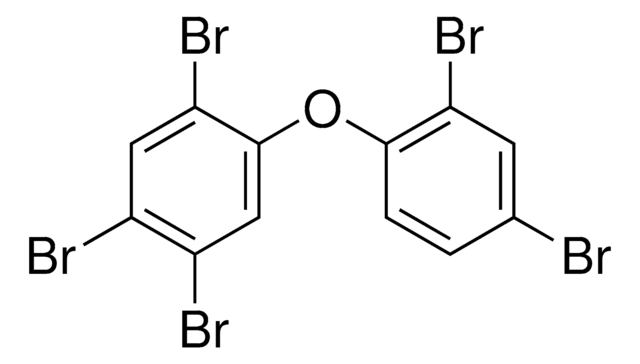
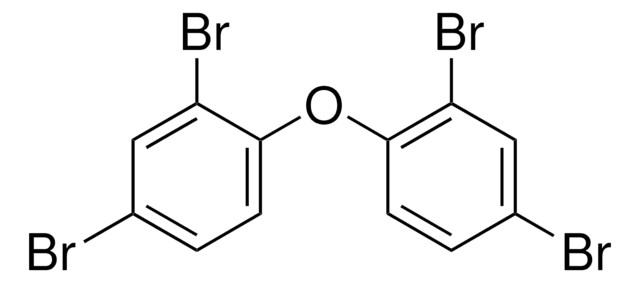
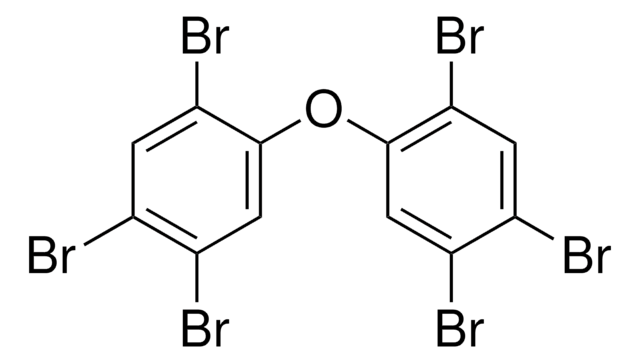
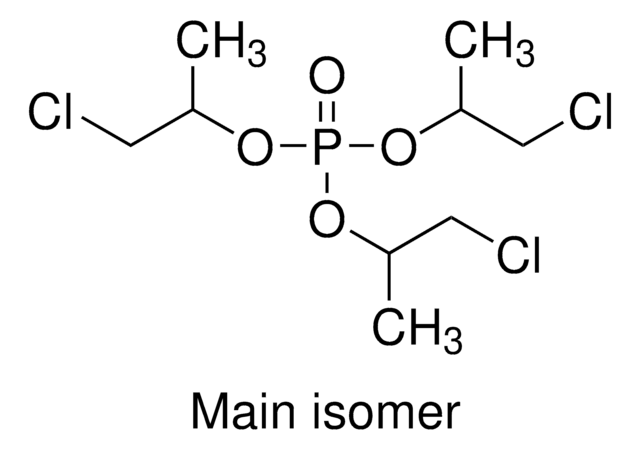
![Benzo[ghi]perylene 98%](/deepweb/assets/sigmaaldrich/product/structures/154/740/c50ff1be-dfb4-4159-a98c-9cecf9206ad3/640/c50ff1be-dfb4-4159-a98c-9cecf9206ad3.png)
